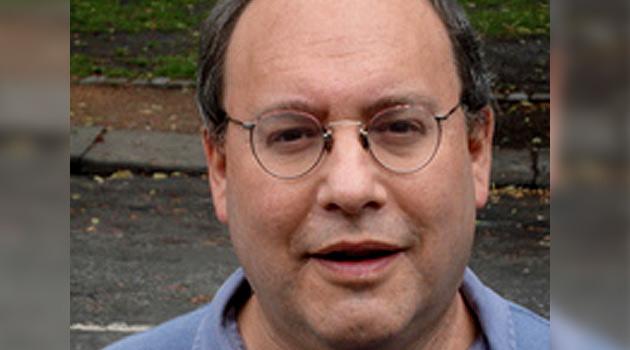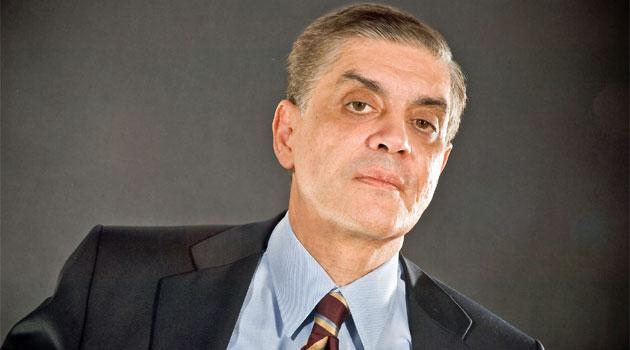Under this heading – substitute with "we" – billionaire George Soros and Council of Europe Secretary General Thorbjørn Jagland
published this comment week before
last.
The opening sentence says it all: “For more than four decades Europe’s Roma community have wanted to establish an institution that would give their music, art and unique traditions their own stage”. Nothing could be more symbolic. Efforts are currently underway at the Council of Europe to dismantle the current arrangement for Romani political representation and to discontinue the consultative status awarded to the European Roma and Traveller Forum ten years ago. Thus an era comes to end that began with Parliamentary Assembly Resolution 1203 from 1993, which called for Romani representatives to be embedded into the political structures of the Council of Europe. Instead, Roma are now being placed on stage as performers and entertainers — where European audiences have always appreciated their presence, and where they seem to the majority to be less of a menace.
Don’t miss:
So why are they setting up a European Roma Institute?
"They" are varied. The small circle of young activists who have been pushing forward this agenda (and who launched an aggressive campaign last year against the committee of the European Academic Network on Romani Studies when it expressed concerns about plans for ERI) are hoping to fast-track their careers by getting influential jobs on the basis of their self-declared Romani ancestry, without having to produce a track record of many years of either leadership in human rights campaigns or contributions to scholarship. They wish to benefit from the stream of European funding for Roma-projects for years to come, and they want to be able to mimic the recognised scholarly authority of eminent researchers who, thanks to the EANRS, have in the past few years made a visible appearance on the landscape of European political institutions.
Those in the inner circle of the Open Society Foundations’ Roma programmes, who, backed by one of the most formidable financial powers in the world, have managed to get direct access to the top echelons of political power at European level, seek to cement the legacy of George Soros now that most of his Roma activities have been shut down and the Decade of Roma Inclusion has ended with very few structural results to show except for a sector of professional Roma activists, who now need employment.
For the European political organisations it is convenient to be able to showcase an initiative on Roma that is "Roma-led" without actually giving it direct access to policy making and without having to recognise it as a political representation of Roma. ERI will also serve as a quick fix for some governments’ desire to see the Council of Europe sever its links with ERTF and thereby do away with the vision of a formalised Romani consultative status at the Council of Europe.
Why should we be concerned about a European Roma Institute?
In the format in which it has been proposed, this will be a non-transparent body run through an amalgamation of financial and top-down political power connections with little or no accountability. It will be steered by an exclusive circle of self-appointed individuals, most of them with little experience in managing cultural enterprises and some with a proven record of disregard and disrespect for established processes of scholarly enquiry and administrative routines. It will take decisions in an inner circle based on favouritism and privileged access, and it will dismiss any calls for scrutiny or intervention as racism and utilise the claims of its members to Romani ancestry to legitimise whatever actions and ideas it chooses to pursue out of self-interest.
This circle will remain detached from the day-to-day concerns of Romani communities, and it will thereby provide European institutions with the alibi that they need to ignore those concerns. It will institutionalise the gap between Romani communities and the small circle of those whose careers revolve around their role as “professional Roma”- serving a tokenistic function in NGOs and international organisations without actually making a genuine contribution either to Romani communities or to the professions that they pretend to represent. It will try to keep a tight grip on the allocation of resources and the recognition afforded to Romani cultural initiatives at grassroots level, and it will endeavour to turn pluralistic cultural creativity into a centralised, top-down pyramid.
Structured in this manner, ERI will signal to the public and to political institutions that a Roma voice is welcome in the form of artistic performance, thus catering to the romantic stereotype of Roma as entertainers and offering the political establishment an excuse to downplay efforts to ensure Romani participation at the political level. It will provide them with the legitimacy that they need to take the issue of Romani human rights off the political agenda.
If it pursues its declared goal of “developing and disseminating knowledge”, then there is a real risk that ERI will try to impose a top-down ideology that will dictate ad hoc positions on Romani culture and history, which it will try to present as academic. It will promote ideas from people, who present themselves as Roma, as scholarly contributions regardless of their scholarly merit, while oppressing the views of those who contradict them. In this way it will lower the threshold for evidence-based enquiry in the study of Romani culture and threaten to separate it from mainstream standards of academic rigour. It will campaign to isolate views that are not in line with its own ideology and it will thus, within a short time, risk turning into a “thought police”, using its access to funds and the international political arena to censor ideas and to back propaganda. If it does go down that track, then it will risk alienating scholars and even discouraging them from engaging with Romani culture, and it will thereby isolate the study of Romani culture from mainstream academia and education.
Of course there is another possible scenario, and that is, that ERI will do nothing at all; that it will consist of a small number of individuals who will collect their paychecks from the donors without initiating any public discussion, and will thus provide the sponsors within the political sector with a convenient alibi for doing nothing to improve the situation of Roma in Europe.
However, if it does deliver on its promise to follow the stereotypical approach to Romani culture, then at least we might hope that ERI will offer a course to the public on fortune-telling; and if my predictions come true, then maybe I’ll be allowed to teach it.
Yaron Matras is a linguist at the University of Manchester specializing in Romani and other languages.

